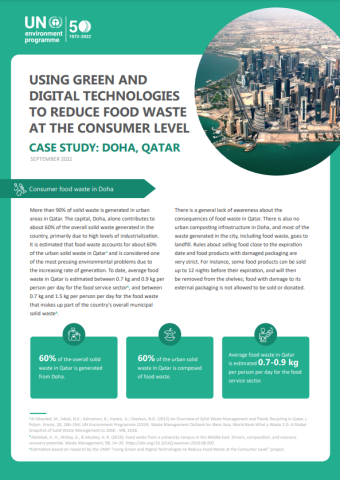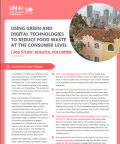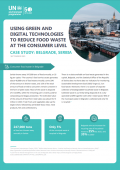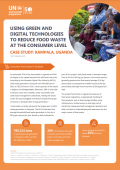
More than 90% of solid waste is generated in urban areas in Qatar. The capital, Doha, alone contributes to about 60% of the overall solid waste generated in the country, with food waste considered one of the most pressing environmental problems.
This case study shows how Doha can harness green and digital technologies to reduce food waste at the consumer level as well as contribute to the SDGs and climate goals, and build back better from the COVID-19 pandemic. This includes improving urban waste management infrastructure, such as separate waste collection, recycling and composting stations, and promoting a mandatory separate collection of organic waste. Public organizations have an important role in coordinating intervention strategies, including through the creation of stakeholder committees with key actors along the food value chain.
Doha is one of five cities in five regions assessed in the UNEP-led Build Back Better: Using Green and Digital Technologies to Reduce Food Waste at Consumer Level project.




